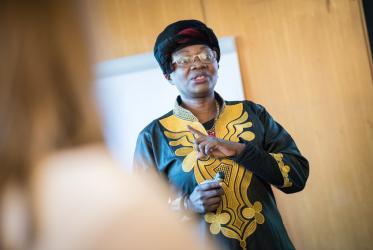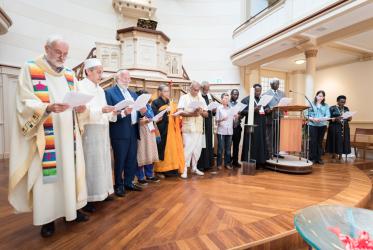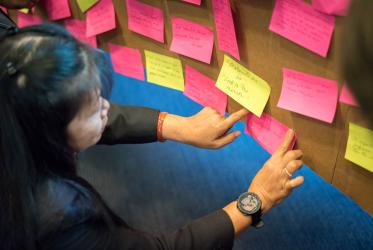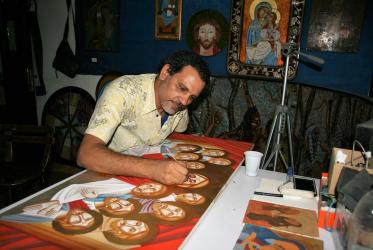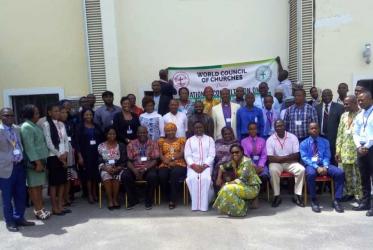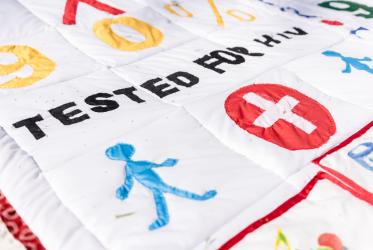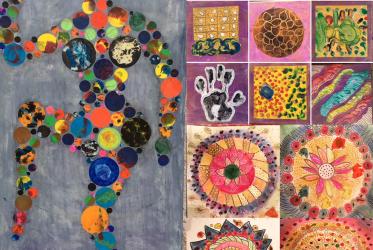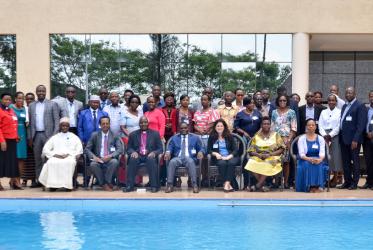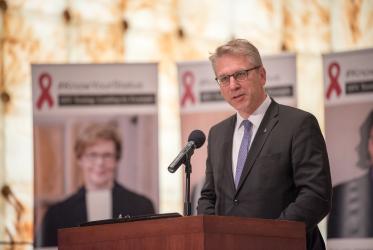Displaying 81 - 100 of 222
WCC former staff appointed to expert panel
31 July 2018
Working toward an AIDS-free generation
26 July 2018
Building bridges of faith in the HIV response
25 July 2018
Building Bridges in the global HIV response
25 July 2018
#WCC70: A prayer about health and healing
20 July 2018
WCC mourns passing of Calle Almedal
11 June 2018
World AIDS Day 2017 - prayer service, exhibition, panel discussion
01 December 2017
Ecumenical Centre, Geneva
“God has brought ways of defeating HIV”
31 October 2017
Faith on the fast-track - for children living with HIV
13 September 2017
“It will take faith to get down to business, to overcome HIV and AIDS”
13 September 2017

